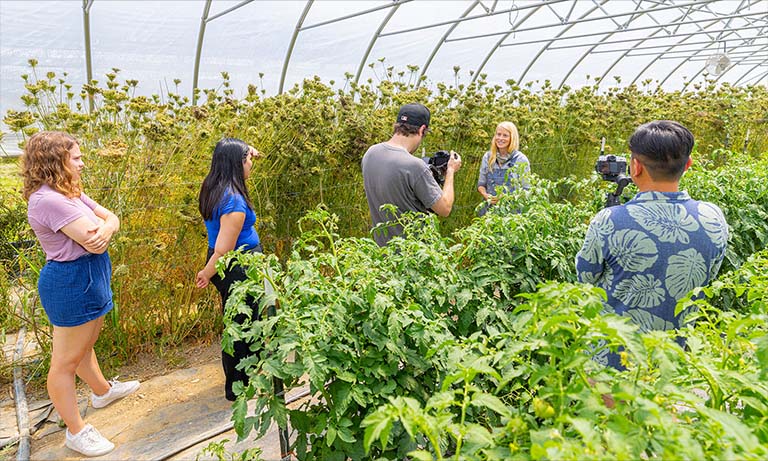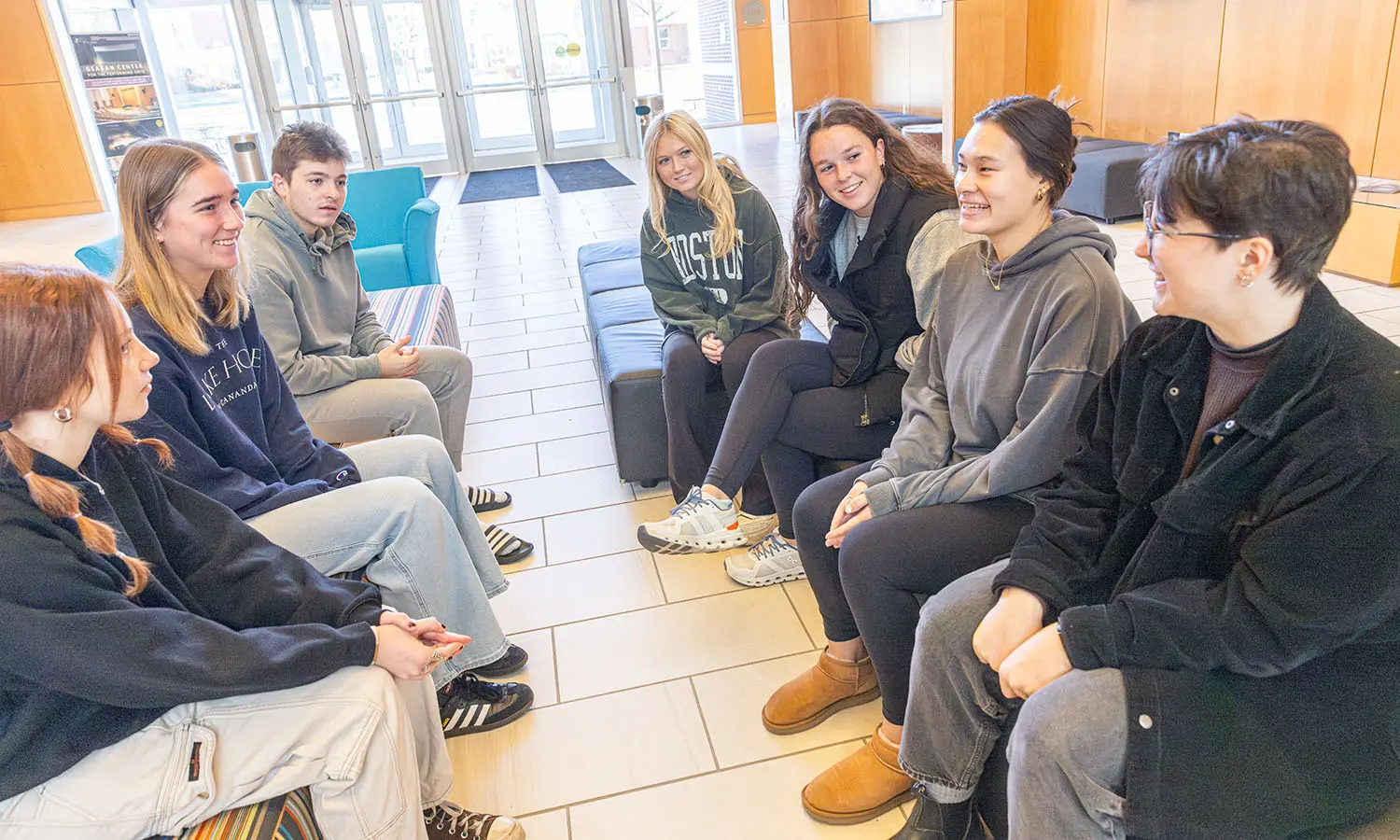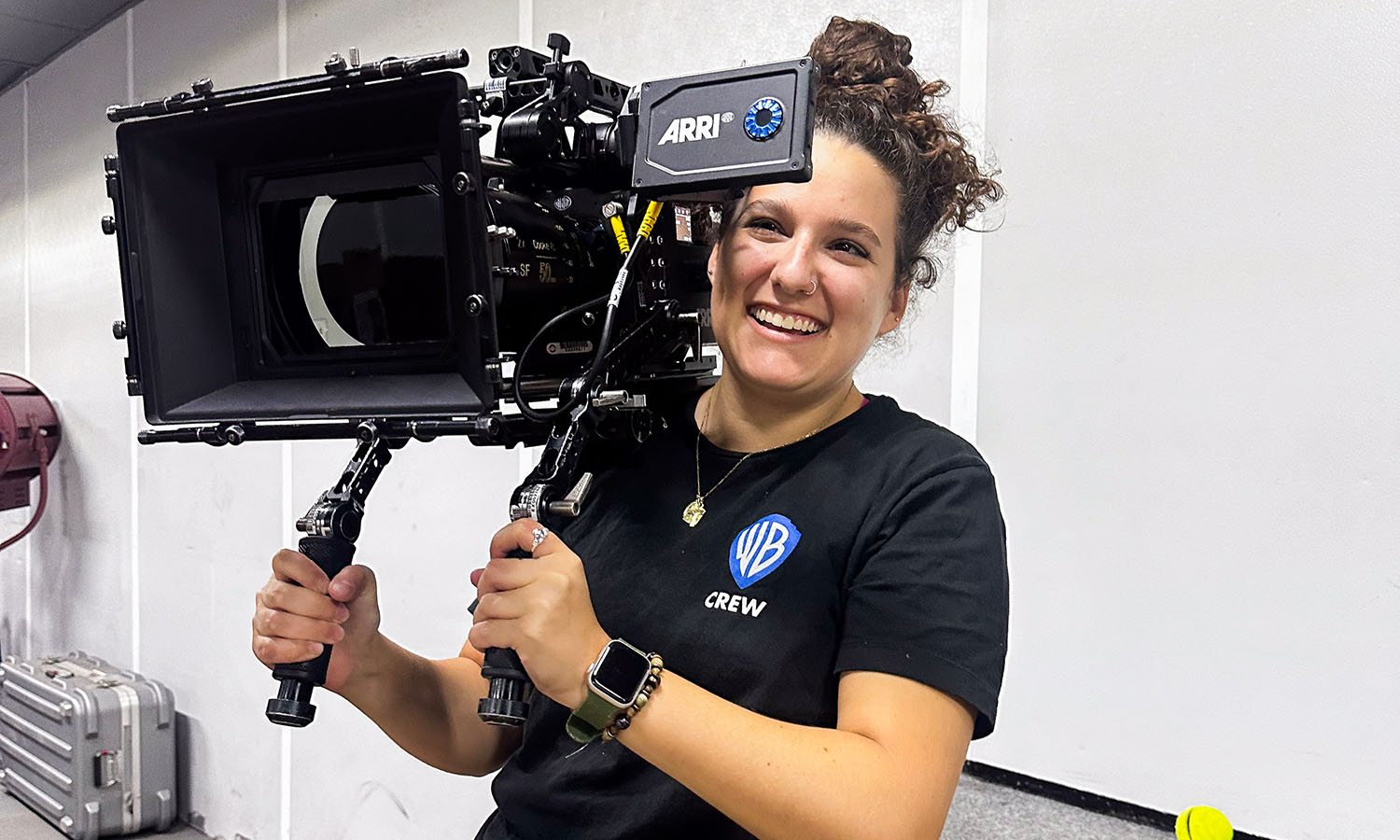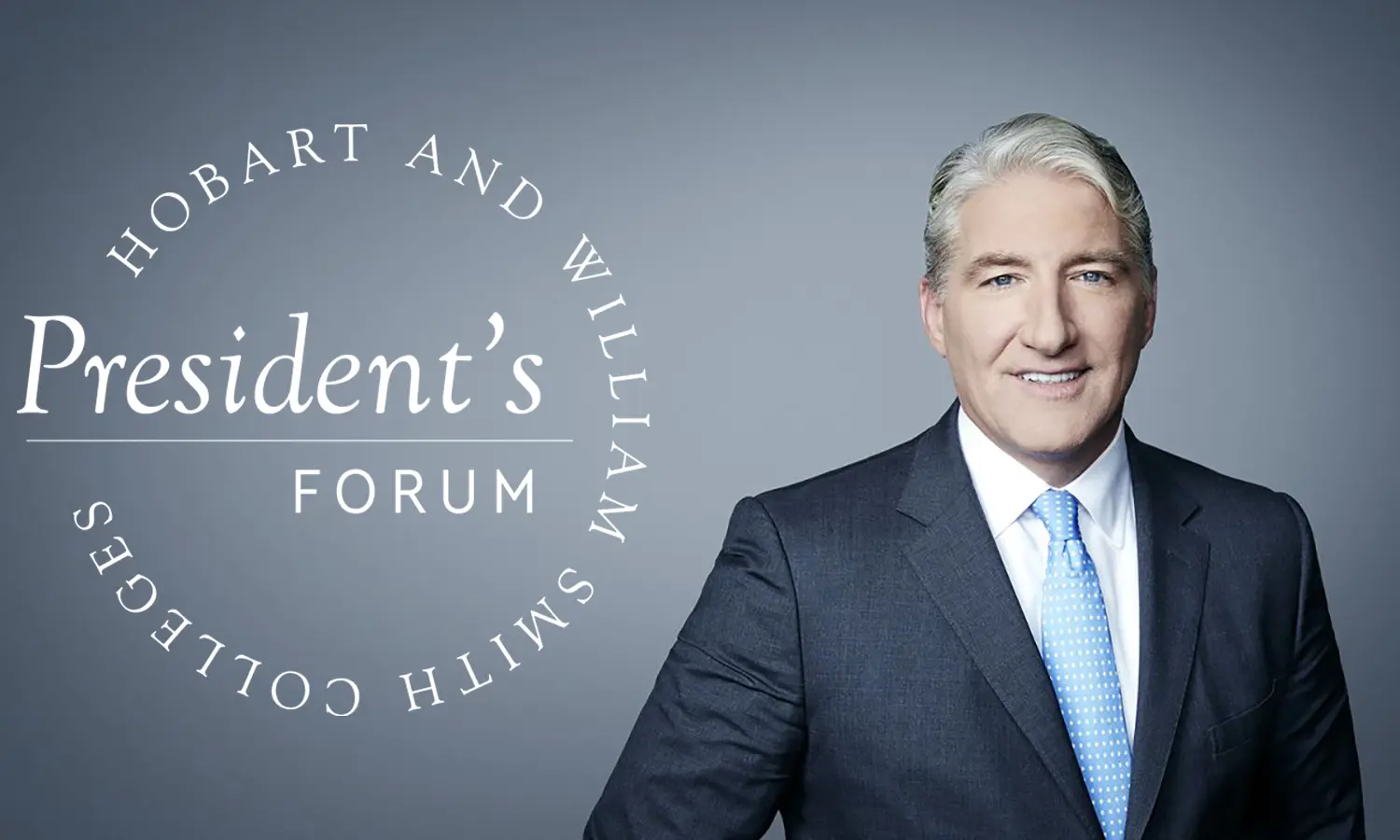
HWS News
1 January 2024 The Stories We Tell By Natalia St. Lawrence '16
Alongside Assistant Professor of Media and Society Jiangtao Harry Gu, students are getting to know the people and environment of the Finger Lakes — and what their stories reveal about living in collaboration with nature and one another.
Storytelling shapes how we understand the world around us, and in turn can be “the most powerful tool for social change,” says Assistant Professor of Media and Society Jiangtao Harry Gu ’13.
In courses like “Listening to the Finger Lakes,” Gu’s mentees study traditional and emerging media skills, from interviewing techniques to video production to podcast editing, as well as the capacity of narrative to illustrate the complex relationships between people, ideas, place and action.
Last summer, Gu launched a multimedia story-sharing project called FLX Folks, a YouTube series and book profiling land stewards in the Finger Lakes who are preserving the environment and building food security in the region.
So far, the production team — including research assistants Katelyn Oswalt ’24 and Brenda Plascencia ’24 — has interviewed log-grown mushroom operation Hawk Meadow Farms, regionally-adapted organic seed company Fruition Seeds, and Geneva farmer Jacob Fox ’16. Forthcoming chapters will highlight fermentation, dairy and animal agriculture, and community spaces in the Finger Lakes where people come together to share food and knowledge.
For Plascencia, an aspiring journalist majoring in media and society, the project and Gu’s expertise “opened my eyes into the different aspects that contribute to this type of work.”
“There are many ways to encourage the people we interview to remain open, engaged and vulnerable when answering our questions. Before being a part of FLX Folks, these are skills I had yet to develop,” she says.
During their shoots, Gu encouraged Plascencia and Oswalt to take point conducting interviews and directing.
“While filming at Fruition Seeds, we intentionally placed the camera at eye level with our interviewee, Petra Page-Mann, in order to convey an intimate setting,” says Oswalt, who is double-majoring in political science and psychological science. “During our first screening, the audience remarked that this choice helped them feel as though they were at the seed farm alongside us.”
Bound for law school after graduation, Oswalt says she’s grateful for the opportunity to work on the project. “Throughout our interviews and research, Professor Gu really emphasized that through listening and learning from the perspectives of others, we are able to be more empathetic to the issues they may face and therefore expand our understanding,” she says.
Oswalt and Plascencia agree that the project has been a masterclass in multimedia storytelling.
For Gu’s part, Plascencia and Oswalt have been “crucial for this project because they bring fresh perspectives into the stories we are trying to tell.”
“Each of the folks we interviewed has stretched our imagination about how to live a meaningful life in collaboration with nature and with each other,” he says. “Their stories are so important in a time where climate change and ecological degradation seem more and more irreversible.”
Next, Gu plans to turn FLX Folks toward the environmental education and outreach projects that engage students through the Finger Lakes Institute and the Center for Community Engagement and Service Learning. He hopes that as the storytelling deepens, so will the Colleges’ “collaborative relationship with the local community.”
Top: Pictured here filming Petra Page-Mann at Fruition Seeds, the FLX Folks team includes researchers Katelyn Oswalt ’24 and Brenda Plascencia ’24; videographer and instructional technologist in IT Services Casey Puccini; and Assistant Professor of Media and Society Jiangtao Harry Gu ’13. Photographer Jan Regan (not pictured) is also contributing to the project.



